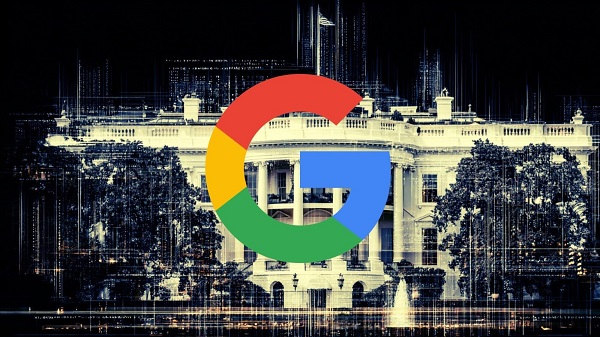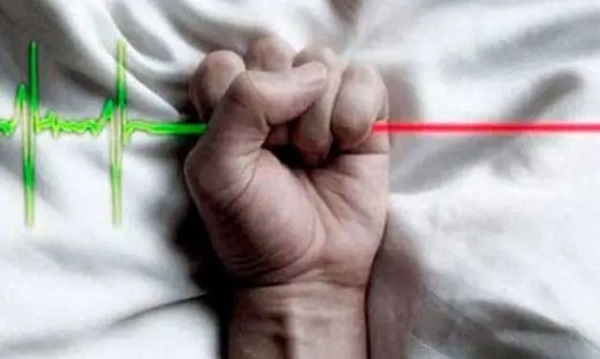Christopher Rufo
Radical Normie Terrorism

Why are Middle American families producing monsters?
In the 1960s and 1970s, America witnessed a wave of political terrorism. Left-wing radicals hijacked airplanes, set bombs in government buildings, and assassinated police officers in service of political goals. The perpetrators were almost always organized, belonging to groups like the Weathermen or the Black Liberation Army. These groups demanded the release of prisoners, denounced capitalism, or called for violent revolution against the United States. Their members were radical but largely lucid, justifying their actions with appeals to a higher cause.
In recent years, a new form of terror has emerged: decentralized, digitally driven violence organized not around coherent ideologies but around memes, fantasies, and nihilistic impulses. The perpetrators of this low-grade terror campaign do not belong to hierarchical organizations or pursue concrete political aims. More often, they come from ordinary families and lash out in acts of violence without discernible purpose.
At the close of this summer, two such incidents underscored the trend: the attack on schoolchildren at Annunciation Catholic Church in Minneapolis, Minnesota, and the assassination of Charlie Kirk in Orem, Utah. Though the first resembled the school-shooter archetype and the second evoked a JFK-style political assassination, both share psychological and sociological roots that make them more alike than they initially appear.
The new terror campaign is defined by a particular kind of psychopathology. It is perhaps tautological that anyone willing to kill innocent schoolchildren as they are praying or to assassinate a popular podcast host in broad daylight is pathological. But in these cases, both alleged killers—Robin Westman (formerly Robert Westman), and Tyler Robinson—left behind several warning signs that were psychological in nature.
Westman, the alleged Annunciation shooter, left a diary detailing fantasies and inner turmoil related to his transgender identity. While he decorated his weapons with pithy slogans, including “Kill Donald Trump,” “Burn Israel,” and “Nuke India,” these were memes and ironies, designed to give the appearance of ideology, concealing a potentially more disturbing motive. He was in the throes of a transgender identity crisis and had fantasized about being a demon and wanting to watch children suffer. The ideology was a brittle shell around a deeper emptiness that could only be satisfied with horror.
Robinson, Charlie Kirk’s alleged assassin, reportedly spent thousands of hours playing video games, had an account on sexual fetish websites, and played a “dating simulator” game involving “furries,” muscular cartoon characters that are half-animal and half-man. Officials claim that Robinson had moved in with a boyfriend who identified as transgender and to whom he confessed the crime. Like Westman, Robinson inscribed slogans on the shell casings he used in the assassination, including a message about noticing the “bulge” of male genitalia through women’s clothing. The fact that Robinson waited until Kirk began to answer a question about transgender mass shootings seems to reinforce the point.
In addition to their shared fixation with transgenderism, both Westman and Robinson immersed themselves in peculiar digital subcultures. These online spaces were not hubs of Marxism—or even transgenderism, strictly speaking—but of memes, attitudes, copycatting, in-jokes, and irony that, in certain cases, spilled over into violence. Both men allegedly acted out their fantasies not to advance a coherent ideology shaped by study or political organizing but to gratify an obscure personal urge.
In a note to his transgender boyfriend, Robinson wrote that he wanted to stop Charlie Kirk’s “hate.” While this may hint at a nascent ideology, the remark was perfunctory and incidental to the crime. Robinson did not seek to change policy or dismantle a system of government. He seems instead to have wanted to kill a man who spoke openly about transgenderism and embodied a vague notion of “hate.”
Another striking pattern in these crimes is that, at least from initial reporting, the alleged perpetrators came from ordinary, middle-class, Middle American families. Westman’s mother, for example, was active in her Catholic parish in Minneapolis. These were not visibly broken homes but functional households that nonetheless produced monsters—what we might call “radical normie terrorism.”
Radical normie terrorism poses a new challenge for law enforcement. As a veteran FBI agent told me, domestic law enforcement has no systematic program to identify, assess, and respond to this kind of online radicalization. The Bureau still relies on old-fashioned methods—processing tips, knocking on doors, interviewing witnesses—and, in most cases, cannot intervene against disturbed individuals until after they strike.
These acts of terror reflect something dark in our nation’s soul. The perpetrators were so dissatisfied with their middle-class lives that they sought to destroy the highest symbols of their society: murdering children in church pews, an attack on God; and murdering a political speaker in cold blood, an attack on the republic.
Stopping similar killers in the future will be a major challenge. The Internet is hard to police and culture hard to reform. But we should keep the stakes in mind as we work to protect the things we love and grapple for a solution, however elusive it may seem.
Invite your friends and earn rewards
Christopher Rufo
Charlie Kirk Did It All the Right Way

He exposed the lies at the heart of radical left-wing ideologies—and paid the ultimate price for telling the truth.
Like almost everyone in my circle, I have spent the better part of the last week in a stupor. The news of conservative activist Charlie Kirk’s assassination has left all of us who counted him as a friend or colleague in a state of shock and sadness.
I did not know Charlie Kirk well. But I had met him in various green rooms, appeared on his radio program, and worked with him to find capable staffers for the Department of Education. He was always genuine, idealistic, and dedicated to the cause. I’m still astonished by all that he accomplished in such a short period of time. He built an enormous organization, turned himself into a media star, advised the president of the United States, and built a beautiful family—all by age 31.
When we are in the fray of day-to-day politics, it is easy to get consumed by each new headline and triviality. But Kirk’s death marks a pivotal moment, requiring deeper reflection. His life, and tragically his death, reveal some profound truths about the man and about America.
First and foremost, Charlie Kirk did it all the right way. He was a conservative willing to wade into controversial territory. But he was always guided by the idea that debate is the great clarifier and that, in a democratic society, persuasion is the primary means of political change. He set up tables on campus. He debated his opponents. And he believed he could win through the ballot box.
Kirk’s death, and the subsequent reaction to it by the radical Left, underscored the arguments he had made during his time on the stage. For nearly ten years, Kirk had argued that transgender ideology, especially when paired with experimental medical procedures, would result in disaster. From the reports now emerging, it appears likely that the alleged assassin, Tyler Robinson, was radicalized online into anti-fascist and transgender politics. In their most extreme forms, both lines of thinking advocate a nihilistic embrace of violence—the antithesis of Kirk’s approach.
In fact, when he was murdered, Kirk was answering a question about the relationship between transgenderism and mass shootings, a phenomenon that seems to have accelerated in recent years. Kirk sought to engage his opponents in debate; his killer, quite possibly inspired by the trans-radical movement, sought to end that debate with a bullet.
The reaction to Kirk’s death by the mainstream Left has been equally troubling. Thousands of Americans, including students, professors, and even active-duty military members, have publicly cheered his assassination. Some have called for further violence against conservatives. Though I have covered left-wing radical movements for years, I was surprised by the number of people in the “helping professions,” including teachers and doctors, who embraced violent rhetoric.
How should conservatives respond? First, by drawing a line that Kirk himself exemplified: debate is healthy; violence is unacceptable. I’m glad to see that some institutions have terminated the employment of those who cheered on Kirk’s murder.
Contrary to the criticism that this represents a form of right-wing “cancel culture,” these firings were warranted. During the “woke” era, left-wing social media mobs sought the social annihilation of teenagers who sang rap lyrics and a Latino utility worker who cracked his knuckles the wrong way—examples of extreme and unjustified social policing. By contrast, a public school dismissing a teacher for applauding political assassination is a fair consequence.
All societies require boundaries. If there is no social sanction for celebrating violence, America will become a more dangerous place. Social trust, already fragile, will collapse.
On the question of transgender ideology, more information will emerge about Kirk’s alleged killer. But more than enough evidence already exists for federal law enforcement to consider radical transgender ideologues a threat to the civil order of the United States—much like white nationalists, neo-Nazis, militant “anti-fascists,” and other hateful groups. Some figures in the Trump administration, such as policy adviser Stephen Miller and Vice President J. D. Vance, have already indicated that they are ready to take action to enforce the law against violent movements.
Charlie Kirk sacrificed his life for truth. We should honor his legacy by standing firmly on principle, engaging in political debate, and, when necessary, enforcing the law against those who would organize violence in the name of politics.
Business
Cracker Barrel and the Power of Conservative Boycotts

The uproar over the restaurant chain’s rebrand might appear trivial, but it carries a deeper significance.
Last week, another viral culture war story captured the headlines. The old-timey restaurant chain Cracker Barrel had rebranded, removing the old man and the barrel from its logo, and replacing it with a simple, modernistic, typography-only design.
At first, I dismissed the story as trivial. I have never set foot in a Cracker Barrel and, as such, have little stake in what is emblazoned above its doorways. But after speaking with conservative activist Robby Starbuck, I learned there was something beyond the logo that deserved our attention. According to Starbuck, Cracker Barrel, whose customer base is heavily white, conservative, and rural, had spent the last few years adopting all the fashionable left-wing corporate policies: DEI, Pride, pronouns, race politics, and the rest.
The logo change might have caught the public’s initial attention, but the underlying political story had real stakes. If companies that depend on conservatives adopt radical left-wing policies, they must face the consequences.
And, thanks to the work of Starbuck and others, the social media uproar seems to have made a difference. As the story circulated through the media, the company’s stock price plummeted by as much as 17 percent. Cracker Barrel has quickly walked back its changes.
All this is salutary. Beginning with the revolt against Bud Light, the Right learned how to flex its muscles in the marketplace. Rather than defer to corporations as they did in the past, conservatives have realized that corporations have a culture and must be constantly reminded that, if they deviate from core American values, the consequences will be felt in their bottom line. Starbuck has had enormous success on this point, leading boycott campaigns that have changed policies at Harley-Davidson, Tractor Supply, John Deere, and other major brands.
A number of lessons can be drawn from this experience. First, conservatives can win these culture fights. Second, corporations follow the narrative in the media. Third, behavior changes through reward and punishment.
This last point is especially important. Some might dismiss the Cracker Barrel campaign as minor, or even embarrassing, given that the company is a decidedly down-class brand. But there is enormous value in making an example of the company and cementing a fear that conservatives can spontaneously lash out at any institution that crosses the line. Today, it’s Cracker Barrel; tomorrow it might be Pepsi, Target, or Procter & Gamble. As we have seen in recent years, corporate CEOs are highly sensitive to shifts in public opinion—and marginal changes in revenues—and will drop left-wing policies as soon as they become a liability.
The question is how to gain leverage. We are all tempted to be polite in public. But the fight over corporate culture can’t be won without securing real, tangible victories—which means real, tangible losses for institutions on the other side. Even if we don’t care about Cracker Barrel in particular, we should all care about the ideological capture of American institutions and use whatever power we have to reverse it.
And for that to occur, the Barrel must be broken.
Subscribe to Christopher F. Rufo.
For the full experience, upgrade your subscription.
-

 Business2 days ago
Business2 days agoOver $2B California Solar Plant Built To Last, Now Closing Over Inefficiency
-

 Alberta2 days ago
Alberta2 days agoAlberta’s Justice and Public Safety Ministers shoot down Ottawa’s firearm buyback failure
-

 National1 day ago
National1 day agoStatscan: Canada is getting Older, Poorer, and Smaller
-

 Business2 days ago
Business2 days agoGoogle Admits Biden White House Pressured Content Removal, Promises to Restore Banned YouTube Accounts
-

 Business2 days ago
Business2 days agoThe Leaked Conversation at the heart of the federal Gun Buyback Boondoggle
-

 Business2 days ago
Business2 days agoGoogle says Biden admin ‘pressed’ it to censor some COVID-19 content
-

 espionage22 hours ago
espionage22 hours ago24 years later: Tucker Carlson releases interview with retired CIA agent claiming the CIA KNEW 9/11 was coming
-

 Business1 day ago
Business1 day agoWEF has a plan to overhaul the global financial system by monetizing nature








